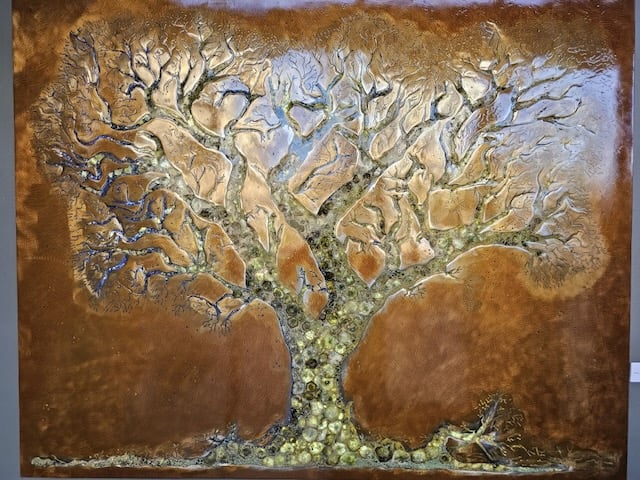Each February, we come together to reflect on and celebrate the countless contributions African Americans have made to society through Black History Month.
Just as communities rightfully honor those who have shaped their history, God’s people have a profound opportunity to recognize and celebrate the individuals who have been instrumental in developing and preserving our faith. Their contributions are not just significant—they are the very foundation of the beliefs we uphold today.
With that same spirit of reverence and gratitude, this article seeks to honor the early figures who established the theological foundations that continue to guide the church. We will look at three instrumental church fathers—all North Africans:
Why study church history?
But first, why should we even care about church history?
In 2019, as a pastoral intern and seminary student, I had the privilege of teaching a church history class at my church. As I prepared, two books helped ground my perspective: Mark Noll’s Turning Points and Thomas C. Oden’s How Africa Shaped the Christian Mind. These works provided valuable historical context that deeply shaped my faith—particularly in understanding why the fathers I mentioned above were so critical to church history and Christian doctrine.
In his Olivet Discourse (see Matt 24:1; Mark 13:1; Luke 21:5), Jesus predicts the fall of Jerusalem in AD 70 at the hands of Emperor Vespasian and his son, Titus. According to Noll, this event marked the first major turning point in church history. This monumental event separated Christianity from Judaism geographically. Many Jews and Christians fled Palestine, scattering across various nations. A significant number settling in Africa. As Christianity expanded, it had to establish itself, free from attachment to Judaism—at least regionally.
This shift positioned Africa as a crucial seedbed of influence in Christian history. This leads us to the African fathers, Tertullian, Athanasius, and Augustine.
1. Tertullian of Carthage, defender of the Trinity
Tertullian stands as an example of how God raises up individuals to articulate and defend orthodoxy. A skilled lawyer, writer, and philosopher, Tertullian used his gifts to champion the truth.
In the third century, a teacher from Asia Minor named Praxeas began to spread an idea that later became known as Modalism. This belief states that the Godhead has manifested himself in three different ways throughout redemptive history. First, God the Creator formed heaven and earth. Then, to achieve humanity’s salvation, he took the form of Jesus Christ, the Savior and Redeemer. Finally, after the resurrection and ascension, he ceased to be the Son and became the Holy Spirit.
Stepping in to defend orthodoxy was Tertullian, a leader in Carthage (160–240), whom many call the “Father of Latin Christianity”—as he is the earliest Christian to write in Latin. Challenging Praxeas, he wrote,
He maintains that there is one only Lord, the Almighty Creator of the world, in order that out of this doctrine of the unity he may fabricate a heresy. He says that the Father Himself came down into the Virgin, was Himself born of her, Himself suffered, indeed was Himself Jesus Christ. … For he [Praxeas] was the first to import into Rome from Asia this kind of heretical depravity. … By this Praxeas did a twofold service for the devil at Rome: he drove away prophecy, and he brought in heresy; he put to flight the Paraclete, and he crucified the Father.
In contrast, Scripture presents the Godhead as consisting of three distinct persons. For instance, the Father reigns on his throne, not made by human hands (Acts 17:24), the Son sits at the Father’s right hand (Ps 110:1; Rom 8:34; Eph 1:20), interceding for us day and night (Rom 8:34; Heb 7:25), and the Holy Spirit convicts the world of sin (John 16:8–11), draws people to salvation in Christ (John 6:44), seals believers as God’s children (Rom 8:1–17; Eph 1:13–14), and equips them for ministry (1 Cor 12:1–11).
As Tertullian rebukes Praxeas, he also exposes the spiritual warfare behind this teaching. He writes that “In various ways has the devil rivaled and resisted the truth.” Should we be surprised? Our Lord himself revealed that Satan is “the father of lies” (John 8:44) and has been deceiving since the beginning (Gen 3:1). Is it any wonder that he would use false teachers to distort the truth about the Godhead?
In his grace, God used Tertullian not only to defend the truth but also to introduce a new term to describe the relationship within the Godhead: the Trinity. Tertullian would go on to write:
All are of one, by unity … of substance; while the mystery of the economy is still guarded, which distributes the unity into a Trinity, placing in their order the three persons—the Father, the Son, and the Holy Spirit.
Tertullian coined the term that the church has now used for centuries to describe the mystery of God’s triune nature—three distinct persons, yet one God (Deut 6:4; Rom 3:30; 1 Cor 8:6).
2. Athanasius of Alexandria, champion for Jesus’s divinity
The fourth century proved monumental for the church. Under Emperor Constantine’s rule, the persecution and martyrdom of previous generations came to an end. For the first time, Christianity became intertwined with the state, shaping the course of church history.
Amid these changes, a priest named Arius (from modern-day Libya) emerged in 318. He asserted, “God could never share his glory with anyone.” From this presupposition, he claimed that the Son was created by God, since God created everything. Arius became known for his famous motto, “There was a time when he [Jesus] was not.” He would go on to write,
He was begotten, or created, or purposed, or established, He was not. For He was not unbegotten. We are persecuted, because we say that the Son has a beginning, but that God is without beginning.
Athanasius and the doctrine of Christ
The dispute over Jesus’s divinity was one of the main reasons Constantine convened the Council of Nicaea in 325, seeking to unify the empire. The church was divided over Arius’s teachings, so he called the first ecumenical council to settle the debate. Was Jesus God? Was he man? Was he both?
At the center of this debate stood two men: Arius and Athanasius of Alexandria (AD 296–373). Athanasius served alongside Bishop Alexander of Alexandria and became one of the loudest voices defending Jesus’s full divinity and humanity. He refuted Arius’s view, declaring that Jesus was both fully God and fully man. He wrote,
Being God, he became man, and then as God he raised the dead, healed all by a word and changed the water into wine. These were not human acts. But as wearing a body he felt thirst and weariness and suffered pain. These experiences are not appropriate to deity. … And yet these are not events occurring disconnectedly, distinguished according to their quality, so that one class may be ascribed to the body, apart from the divinity, the other to the divinity, apart from the body. They all occurred inseparably conjoined, and the Lord who marvelously performed those acts by his grace was one.
From their dispute came the famous word homoousios, meaning “same substance.” The church affirmed that Jesus was of the same substance as the Father (John 1:1; 10:30; Col 1:15–17; Heb 1:1–3)—not merely similar.
Scholars refer to the relationship between Jesus’s humanity and divinity as the hypostatic union—two natures unified in one person. Athanasius’s work at Nicaea was foundational in developing the Creed of Nicaea, which affirms the true nature of Christ:
We believe in one God, the Father the almighty, the maker of all things seen and unseen. And in one Lord Jesus Christ, the Son of God; begotten from the Father; only begotten—that is, from the substance of the Father; God from God light from light; true God from true God; begotten not made, being of one substance with the Father; through whom all things in heaven earth came into being; who on account of us human beings and our salvation came down and took flesh, becoming a human being; he suffered and rose again on the third day, ascended into the heavens; and will come again to judge the living and the dead. And in the Holy Spirit.
As for those who say that, “there was when he was not,” and “before being born he was not,” and “he came into existence out of nothing,” or who declare that the Son of God is of a different substance or nature, or is subject to alteration or change—the catholic and apostolic church condemns these.
Athanasius and the canon of Scripture
Athanasius also played a significant role in shaping the New Testament canon. In 367, he became the first person to list all twenty-seven books of the New Testament. In his Easter Letter 39, he wrote that these books are the “fountains of salvation … the doctrine of godliness.” Furthermore, he condemned heretical writings like the Gospel of Thomas, stating,
they are an invention of heretics, who write them when they choose, bestowing upon them their approbation, and assigning to them a date, that so, using them as ancient writings, they may find an occasion to lead astray the simple.
We recognize Athanasius’s enduring legacy in defending the true nature of Jesus and preserving fidelity to the Holy Scriptures. Like Tertullian’s, Athanasius’s contributions continue to shape the church today.
3. Augustine of Hippo, contender for man’s sin and God’s grace
Our final historical figure is often considered the third most influential person in Christian history, after Jesus and Paul. While Tertullian is called the “Father of Latin Christianity,” this man is regarded as the “Father of Western Christianity.” God transformed a promiscuous, pagan, single father into a theologian for the ages. His name is Augustine of Hippo.
In the fifth century, as Augustine was writing some of his most esteemed and influential works, he caught the attention of a British monk named Pelagius. Distressed by the societal evil around him, Pelagius wrestled with theological concerns. He found himself troubled by Augustine’s views on sin and grace. Pelagius agreed with Augustine that God created humanity with free will and that evil originates in human will. However, he strongly disagreed with the idea that humanity has a sinful nature.
In his Letter to Demetrias, a Roman noblewoman, Pelagius argued that God, being righteous, would not command anything of humanity that it was not fully capable of achieving: “It is therefore [unconscionable] that God would ask anything of humanity [being righteous], unless humanity already had the capacity to achieve it.”
Augustine vehemently refuted Pelagius’s claims. Rooted in Scripture (Rom 3:23; 5:12–14; 7:15–25; Eph 2:3; 1 John 1:8), he argued that humanity is inherently sinful and in desperate need of God’s grace:
Human nature was certainly created blameless and without any fault [vitium]; but the human nature by which each one of us is now born of Adam requires a physician, because it is not health. … For this reason, our guilty nature is liable to a just penalty. For if we are not a new creature in Christ, we were still children of wrath by nature, like everyone else. But God, who is rich in mercy, on account of his great love with which he loved us, even when we were dead through our sins, raised us up to life with Christ, by whose grace we are saved. But this grace of Christ … is not bestowed as a reward for merits, but is given freely [gratis] which is why it is called grace [gratia].”
Augustine’s theological work played a pivotal role in shaping the church’s response to Pelagius. As a result, at the Council of Carthage in 418 and the Synod of Orange in 529, the church formally condemned Pelagianism as heresy. However, despite these rulings, Pelagian views persisted in some influential circles. Augustine died knowing that his defense of orthodoxy did not lead to a universal victory.
Even though Pelagianism lingered, Augustine’s theological impact far outlived him. As new generations of Christian leaders and theologians emerged, many followed in his footsteps. By the time of the Protestant Reformation, Martin Luther and John Calvin found inspiration and zeal in the words of Augustine, shaping the course of Western Christianity for centuries to come.
God’s work in history
As we reflect on the pioneers of our doctrine and faith, we would be remiss not to acknowledge God’s sovereign hand throughout history. The Ancient of Days has always guided history toward his intended purpose. Everything bows before our God and Savior. He is at work in the nuances, debates, disagreements, and controversies that arise in every age. Even in the darkest moments of history, he brings about his purposes. He did it then, and he is doing it today.
The past reminds us that God is faithful—and that in every generation, he raises up men and women to champion the gospel, defend the truth, and leave a legacy that inspires those who come after them. God is guiding history. He is still directing our steps. As he does, may he continue to draw you closer to himself.
Jesus Christ as Ancestor: A Theological Study of Major African Ancestor Christologies in Conversation with the Patristic Christologies of Tertullian and Athanasius

 1 month ago
20
1 month ago
20










 English (US) ·
English (US) ·